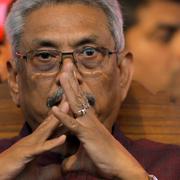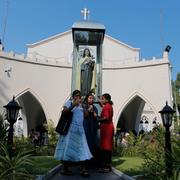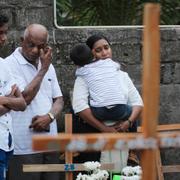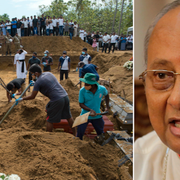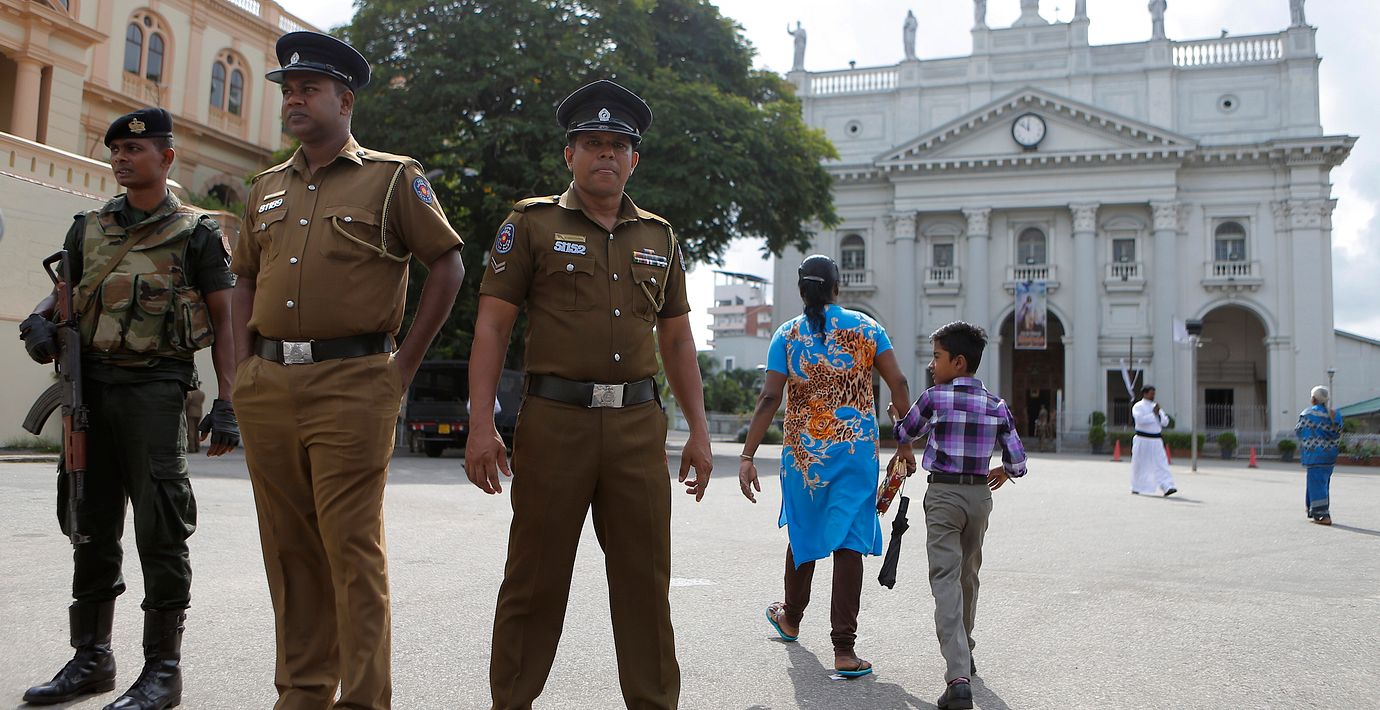
President vägrar samarbeta med bombdådsutredning
Sri Lankas president har meddelat att han inte kommer att samarbeta med parlamentets utredning kring säkerhetsbrister bakom självmordsattackerna i påskas, uppger tjänstemän för AFP.
Över 250 personer dog i attackerna den 21 april. Indiska säkerhetsagenter ska före dåden upprepade gånger ha varnat landets myndigheter om att en komplott planerades och president Maithripala Sirisena har senare anklagats för att ha misskött landets säkerhet. Terrorgruppen IS har sagt sig ligga bakom attacken.
bakgrund
Bombningarna i Sri Lanka under påsken 2019
Wikipedia (en)
On 21 April 2019, Easter Sunday, three churches in Sri Lanka and three luxury hotels in the commercial capital Colombo were targeted in a series of coordinated terrorist suicide bombings. Later that day, there were smaller explosions at a housing complex in Dematagoda and a guest house in Dehiwala. 258 people were killed, including at least 45 foreign nationals and three police officers, and at least 500 were injured. The church bombings were carried out during Easter services in Negombo, Batticaloa and Colombo; the hotels that were bombed were the Shangri-La, Cinnamon Grand, Kingsbury and Tropical Inn.According to Sri Lankan government officials, all seven of the suicide bombers in the attacks were Sri Lankan citizens associated with National Thowheeth Jama'ath, a local militant Islamist group with suspected foreign ties, previously known for attacks against Buddhists and Sufis. State Minister of Defence Ruwan Wijewardene said in parliament on 23 April that the government believed the attack was in retaliation for the attack against Muslims in Christchurch on 15 March 2019. The direct linkage between the two attacks was questioned by New Zealand's government and by some experts.On 23 April 2019, Amaq News Agency, a propaganda outlet for the Islamic State of Iraq and the Levant (ISIL), stated that ″the perpetrators of the attack targeting the citizens of coalition countries and Christians in Sri Lanka were Islamic State fighters″. Sri Lanka was not part of the anti-ISIL coalition, and the overwhelming majority of those killed were Sri Lankan citizens. A man believed to be long-silent ISIL leader Abu Bakr al-Baghdadi praised the attackers during an 18-minute video on a range of topics.
Sri Lanka
Omni är politiskt obundna och oberoende. Vi strävar efter att ge fler perspektiv på nyheterna. Har du frågor eller synpunkter kring vår rapportering? Kontakta redaktionen
